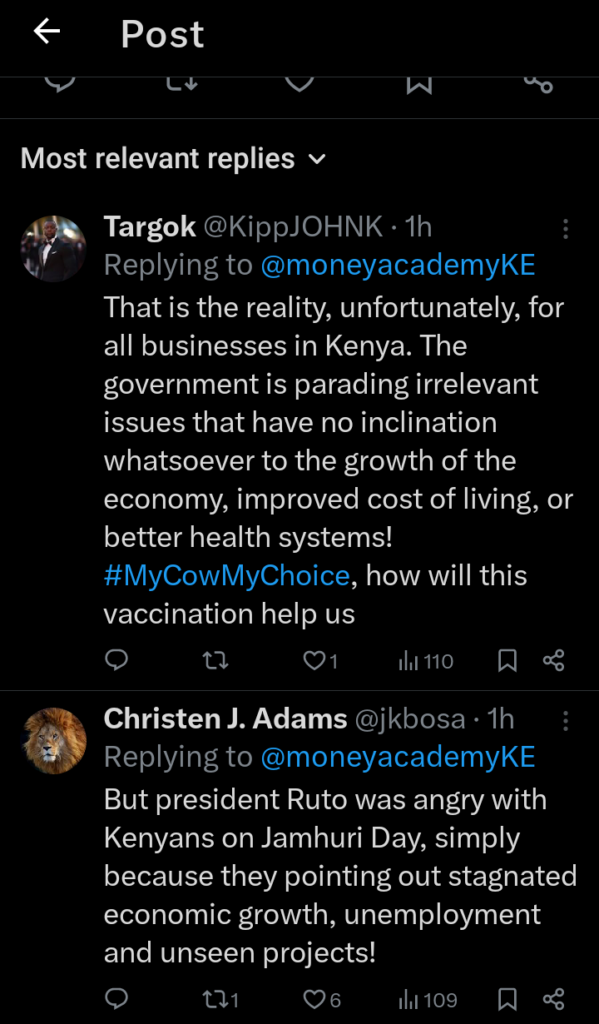President William Ruto’s repeated claims about the stability of Kenya’s economy are increasingly being questioned as evidence of economic crisis continues to emerge.
Recent reports, including a Central Bank of Kenya (CBK) survey, paint a grim picture of the country’s economic health.

From August to November 2024, 31% of manufacturers reduced their workforce due to skyrocketing operational costs and declining sales.
Additionally, over 56% of firms scaled down production, and nearly half of CEOs in Kenya expressed little confidence in economic growth for the coming year.
This disconnect between Ruto’s optimistic declarations and the lived realities of businesses and citizens casts doubt on his leadership and the effectiveness of his policies.
The economic challenges have been particularly severe in the manufacturing sector.
Nearly half of industry leaders, 45%, reported reduced demand for their products.
Rising fuel prices, expensive credit, and diminishing consumer purchasing power have created a hostile environment for businesses.
President Ruto’s policies, such as the doubling of VAT on fuel to 16% and the controversial housing levy, have only exacerbated these struggles.
These measures, presented as necessary sacrifices for stability, have instead burdened businesses and consumers alike.
The escalating electricity prices further pile onto operational costs, leaving firms with no choice but to cut back on production or lay off workers.
The private sector’s struggles are symptomatic of deeper issues plaguing the economy.
Between October 2022 and November 2023, an estimated 70,000 formal private-sector jobs were lost.
What’s concerning is that, 40% of companies are planning additional layoffs by the end of this year, according to reports.
The Federation of Kenya Employers has warned that inflation and weak consumer demand are worsening the unemployment crisis, with no clear solutions in sight.
Meanwhile, a Stanbic Bank report highlights a significant reduction in input orders due to falling revenues, marking the steepest decline in business activity since late 2023.
Such data underscores a fundamental contradiction in Ruto’s narrative of economic recovery.
Business confidence in the current administration has also hit a low point. Only 17% of business leaders expect any meaningful growth in 2024, a stark contrast to the optimism projected by the president.
This lack of confidence among key economic players reflects widespread skepticism about the government’s ability to address the challenges effectively.
Instead of stabilizing the economy, Ruto’s policies appear to have deepened the economic crisis, with mounting unemployment and declining business activity eroding the country’s potential for growth.
While President Ruto insists that economic sacrifices will yield long-term benefits, the reality paints a different picture.
The immediate effects of his policies have been devastating for businesses and households.
The manufacturing sector, once a critical pillar of Kenya’s economy, is now on the brink of collapse.
These systemic failures challenge Ruto’s credibility and highlight the growing disconnect between his rhetoric and the economic hardships faced by Kenyans.
The situation raises serious questions about his administration’s competence in steering the country towards genuine recovery.
